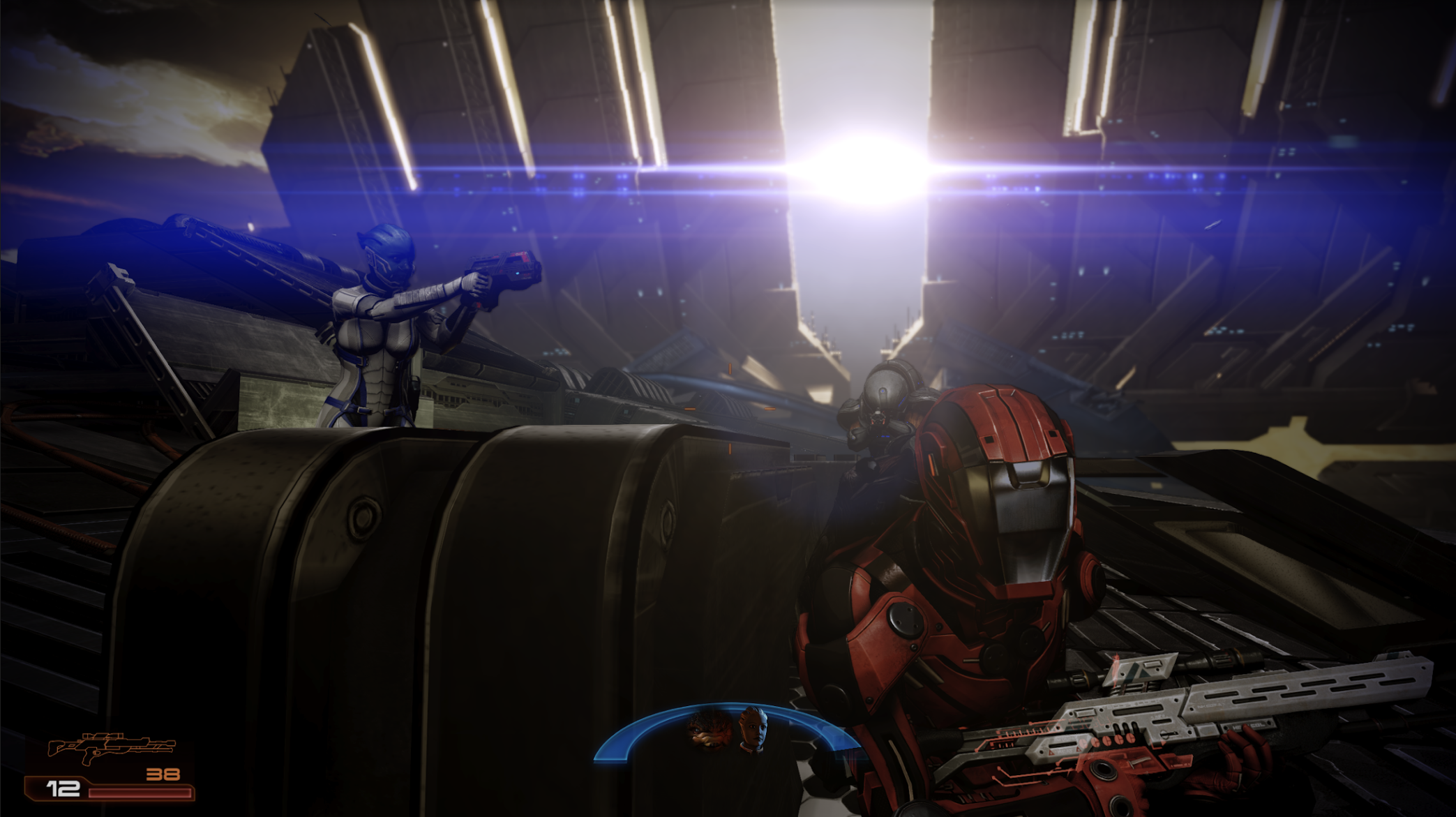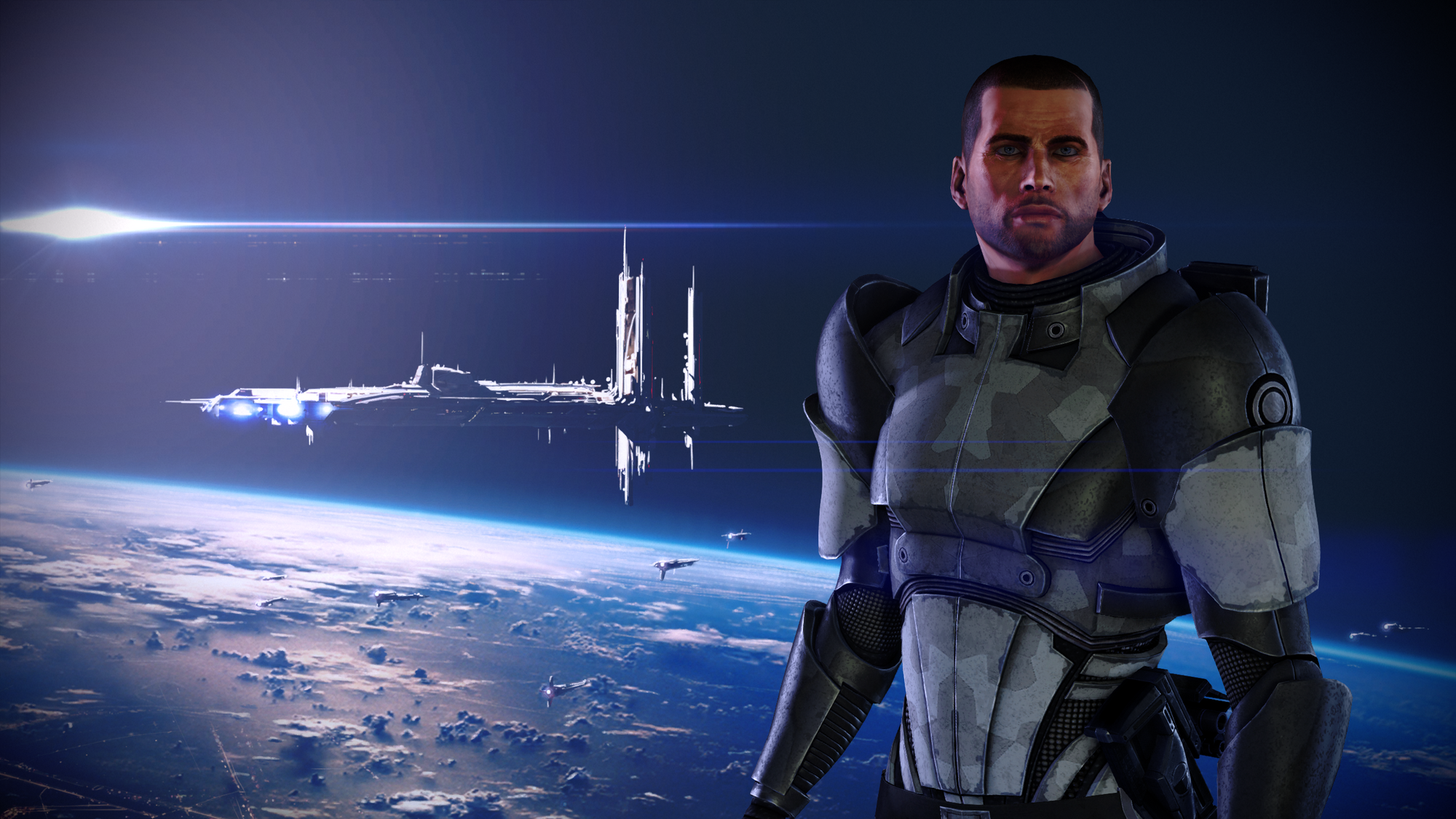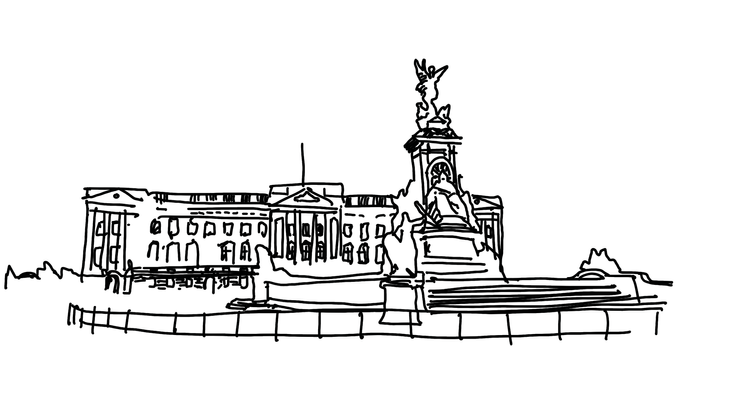Mass Effect 3
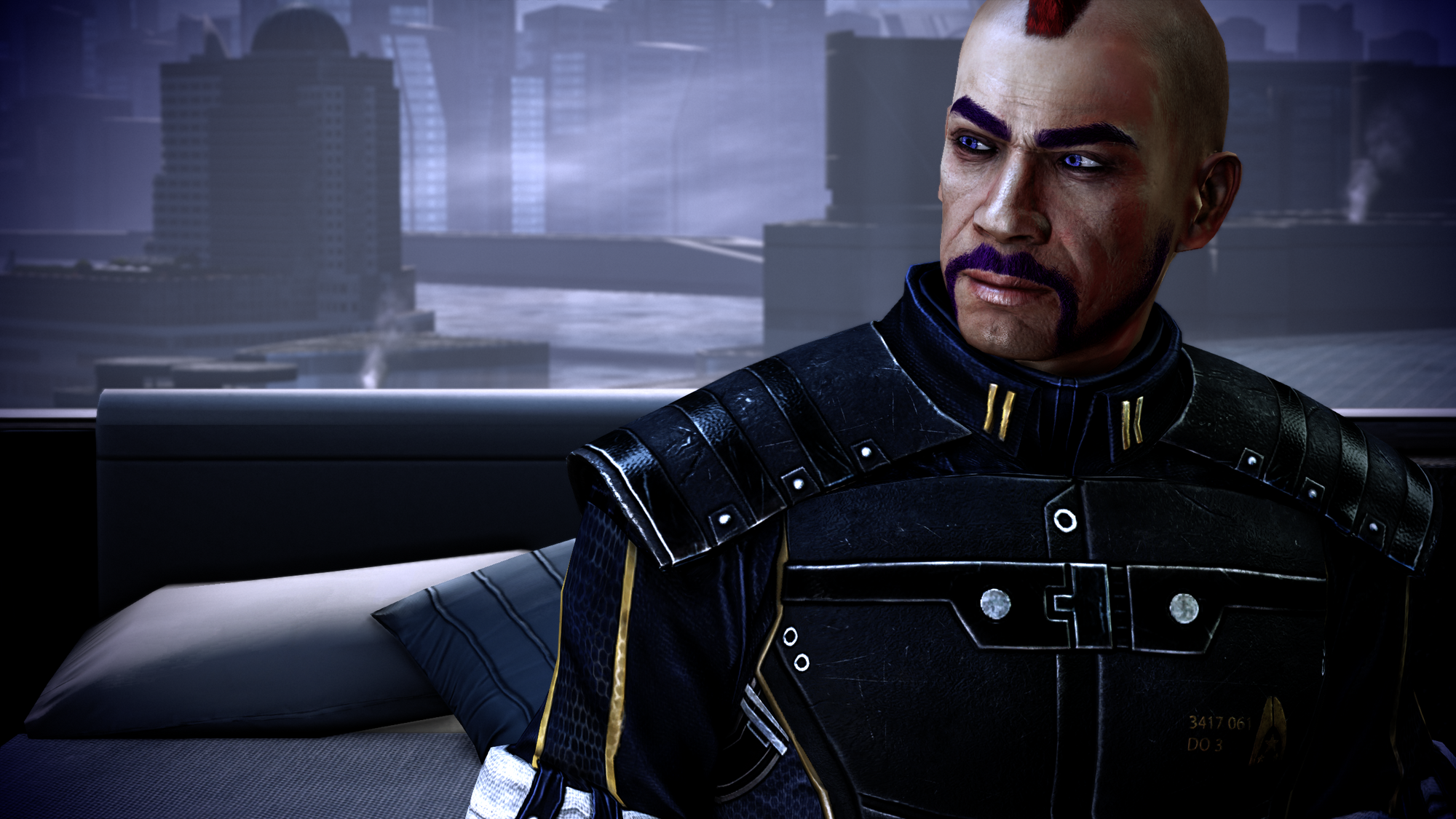
Grade: B+
FYI spoilers below.
I had to stare at the wall for a while after I finished the third Mass Effect (ME3) installment. I chose the "Refuse" option and unintentionally condemned all advanced organic life in the galaxy to destruction by the Reapers. This was followed by a very depressing cutscene of a hologram version of Liara T'Soni appearing far in the future to unknown lifeforms in the next Cycle to pass on the knowledge of the their imminent destruction, just as the Protheans attempted to do for humans and other races in the first game.
I chose the way that I did because the Catalyst (appearing as a Chuckie-like virtual child and whom we learn is the combined intelligence of all of the Reapers) told me that I'd kill all synthetic life, destroy the Mass Relays, and (I think) a bunch of Alliance ships if I used the Crucible. It was a split-second decision based on "oh, that sounds kind of expensive" and an assumption that the game might reward me for my restraint. Super wrong.
I stared at the wall because I realized I'd just played dozens of hours to reach this conclusion and it sucked. Afterward, I watched videos on the other endings I could have chosen and felt marginally better knowing those. I was still bummed because I'd become unmeshed in the story and I felt a distinct sense of ownership over my playthrough.
I'm giving this game a "B+" rather than an "A" for some annoying particularities of the gameplay and the way the storyline collapses down to a few outcomes after what feels like a hundred impactful decisions. However, I give the Mass Effect trilogy as a whole an "A+" for its breathtaking scope. The "import character/story" features at the beginning of the second and third installments reinforce the butterfly-effect weight behind your decisionmaking. Characters interact with you very differently depending on your choices in the prior games, such as sparing the Rachni bug queen (many people seem to think you were stupid to do that even though the Rachni appear to be a neutral/benevolent force). Some characters won't even appear in ME3 based on your selected path in the second installment (for me: Jack, Samara, Thane, etc.), having died during the finale mission to the Collector Base.
In ME3, outside of the Refuse option that I chose, the ending outcomes available to you differ based on the Total Military Strength (TMS) score you run up prior to the finale mission to Earth (I think I landed somewhere around 2300). I found these helpful matrices that lay them all out.
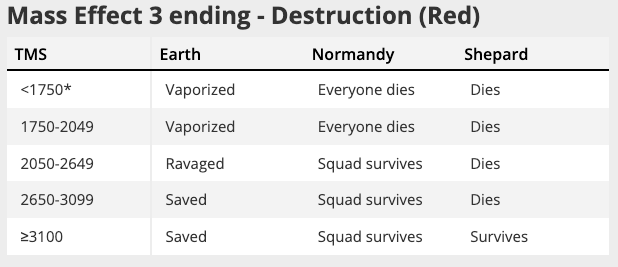


It's an interesting way to incentivize players to do as many of the side quests as possible to crank up their TMS score. Normally I ignore the majority of extra missions in story-driven games precisely because they don't matter in the end. They tend to give the character extra loot: fancy armor or weapons that make combat more fun or satisfying. Because side-questing leads to a better macro-outcome in ME3, I'd do as many as possible in a future playthrough (and pick the Destroy option).
Gameplay/Combat
Combat got another upgrade in ME3 over ME2. It's fun! BioWare increased the adrenaline, savagery, and flow of fighting. The pace of it seems accelerated. There are more opportunities to flank your enemies and surprise them. You don't fatigue after sprinting for five seconds. The bash mechanic got a long-press option that causes Shepard to whip out an energy sword and viciously stab a target. The developers added a bunch of new enemy types with different fighting styles, like Brutes which are basically Hunters from Halo, but still fun to go up against.
Outside of combat, the game also got rid of all of the decryption and bypass mini-games from ME2 which became incredibly annoying and interruptive by mid-game. This helps keep focus on the story.
Also, you finally get an in-game objective display rather than having to consult your Journal and the Map all the time to figure out where to go. It's not perfect, but it definitely felt like it kept me out of the menu more and moving around.
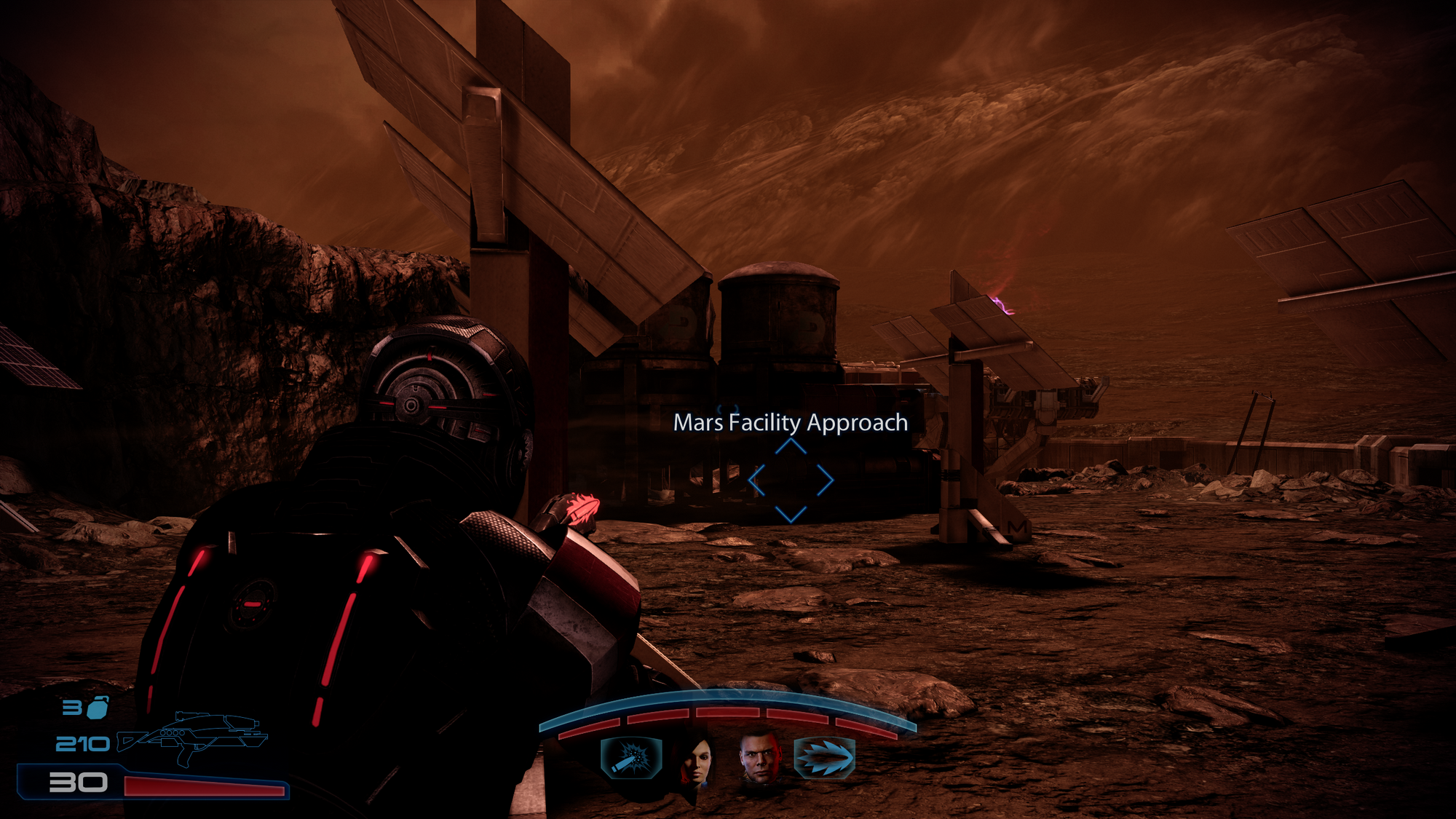
Most of my critiques of this game and others boil down to whether the developers create or remove obstacles to story and game flow. The more events keep moving forward with minimal, tedious choring, the better chance a game has to captivate its audience with the narrative. ME3 generally does well here, but it stumbles in places:
- Every time you finish a mission you're transported to the Comms area near the War Terminal, and you have to trek back to main deck's Galaxy Map via this stupid blue grid that slows you down. You do this dozens and dozens of times over the course of the game. There was one mission to Tuchanka (the Krogan homeworld) if I'm remembering correctly, where you have three back-to-back missions available on the planet and every single time you complete one, you're teleported back to the Comms console and have to walk all the way to the Galaxy Map, through the dumb blue grid, to do the next thing.
- I found this mission to the Geth hivemind to be pretty draggy and tiresome after blasting orange blocks off of the third data cluster representation, but it just kept going.

Character development
This Shepard character modifier was even more ridiculous than in Mass Effect 2. Even if you import a character, the game still lets you change Shepard's features substantially. I ended up with this, which I honestly regretted a little bit after having to stare at that mug for hours on end:
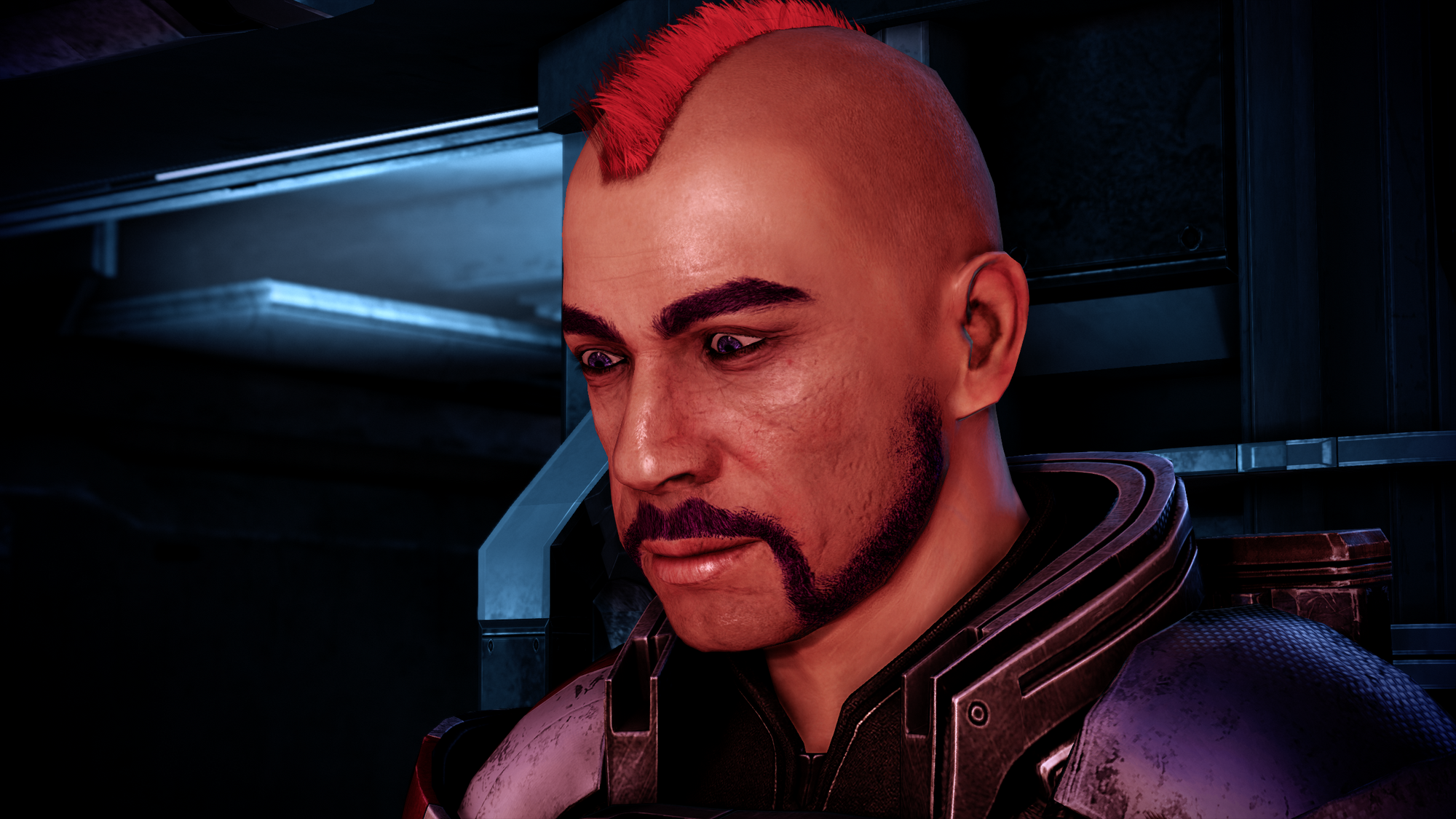
My Normandy-casual outfit:
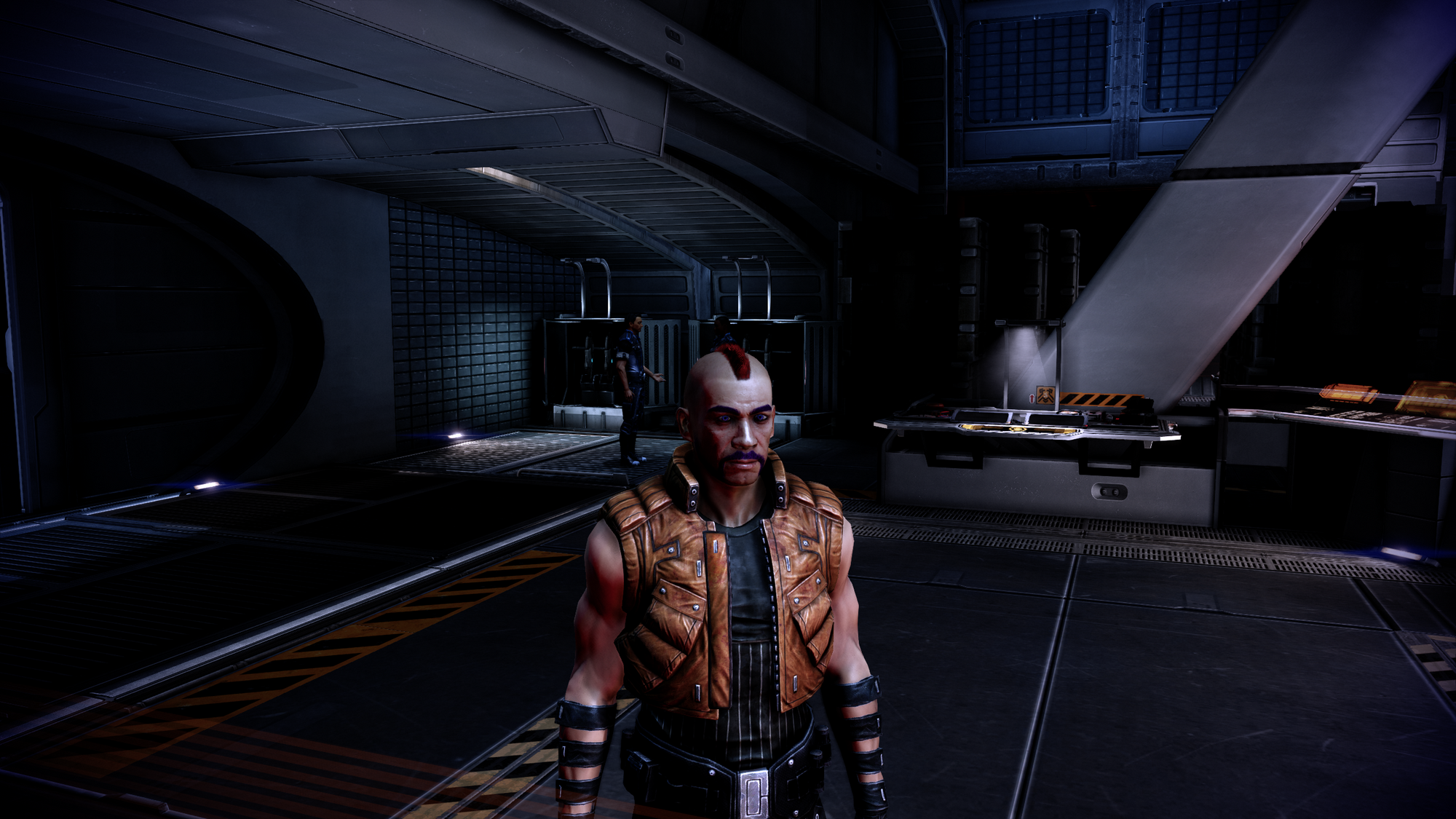
Beyond simple looks, the character development in ME3 feels much more full and player-driven with the Paragon/Renegade mechanic. You can role play Shepard in different ways depending on how many blue (good person) or red (kinda bad person) decisions you make. And in this way, Shepard evolves and other characters interact with him differently. My problem with the last two games was that his character was extremely flat. In this installment, ME3 takes pains to show that Shepard is human, particularly with his repeating nightmare of a child he saw murdered by Reapers on Earth early in the game.
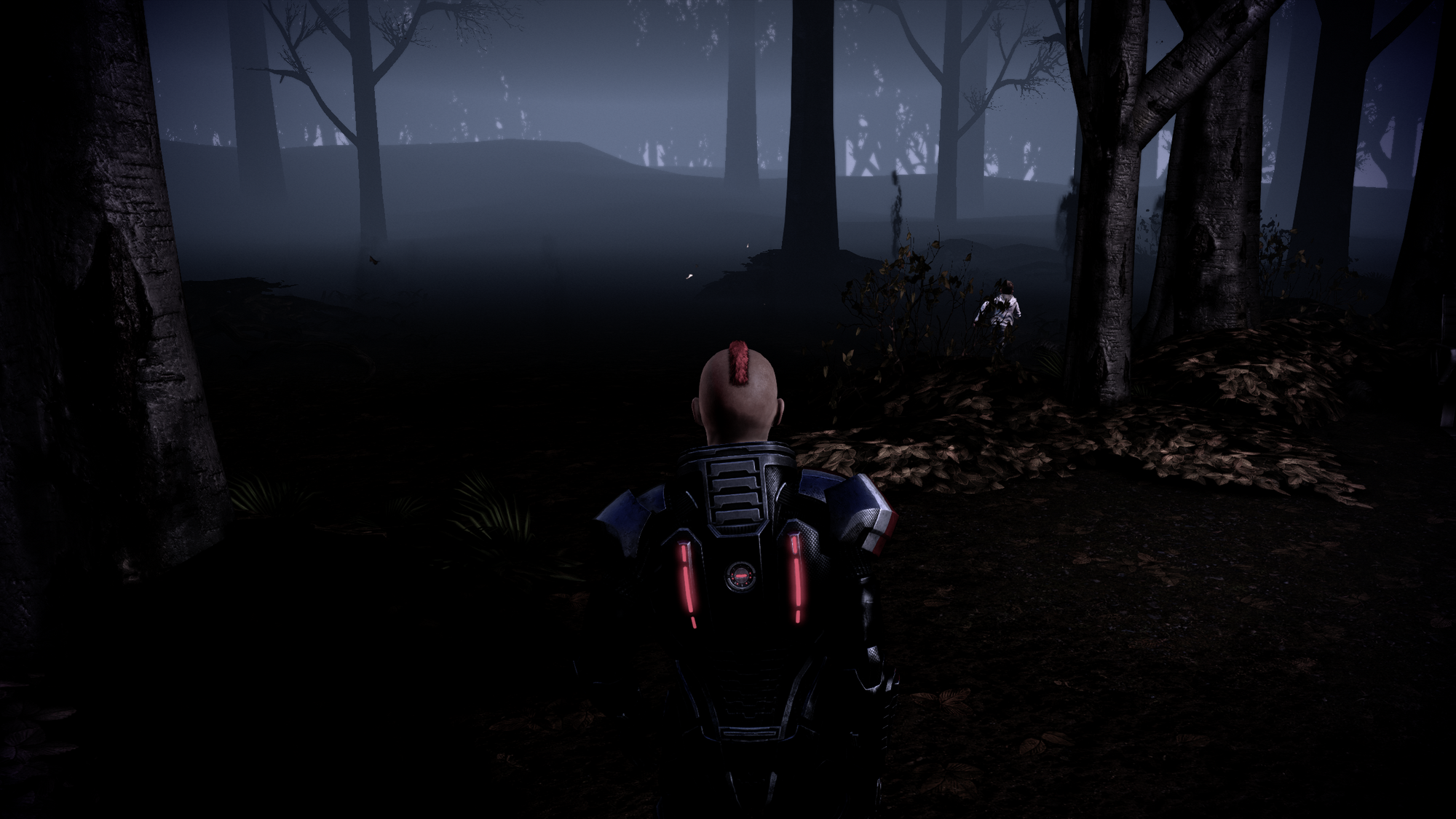
I also liked how ME3 brought down the number of available squadmates to take along your missions from the second installment (from twelve to eight). It gives you a better chance to learn a few of them in more detail and actually form bonds.
Graphics
There were many moments where I had to take in the beauty or scale of a scene. Curing the Krogan Genophage was one of them. All these little pretty sparkly things floating around you and your team added to the satisfaction of completing the mission:
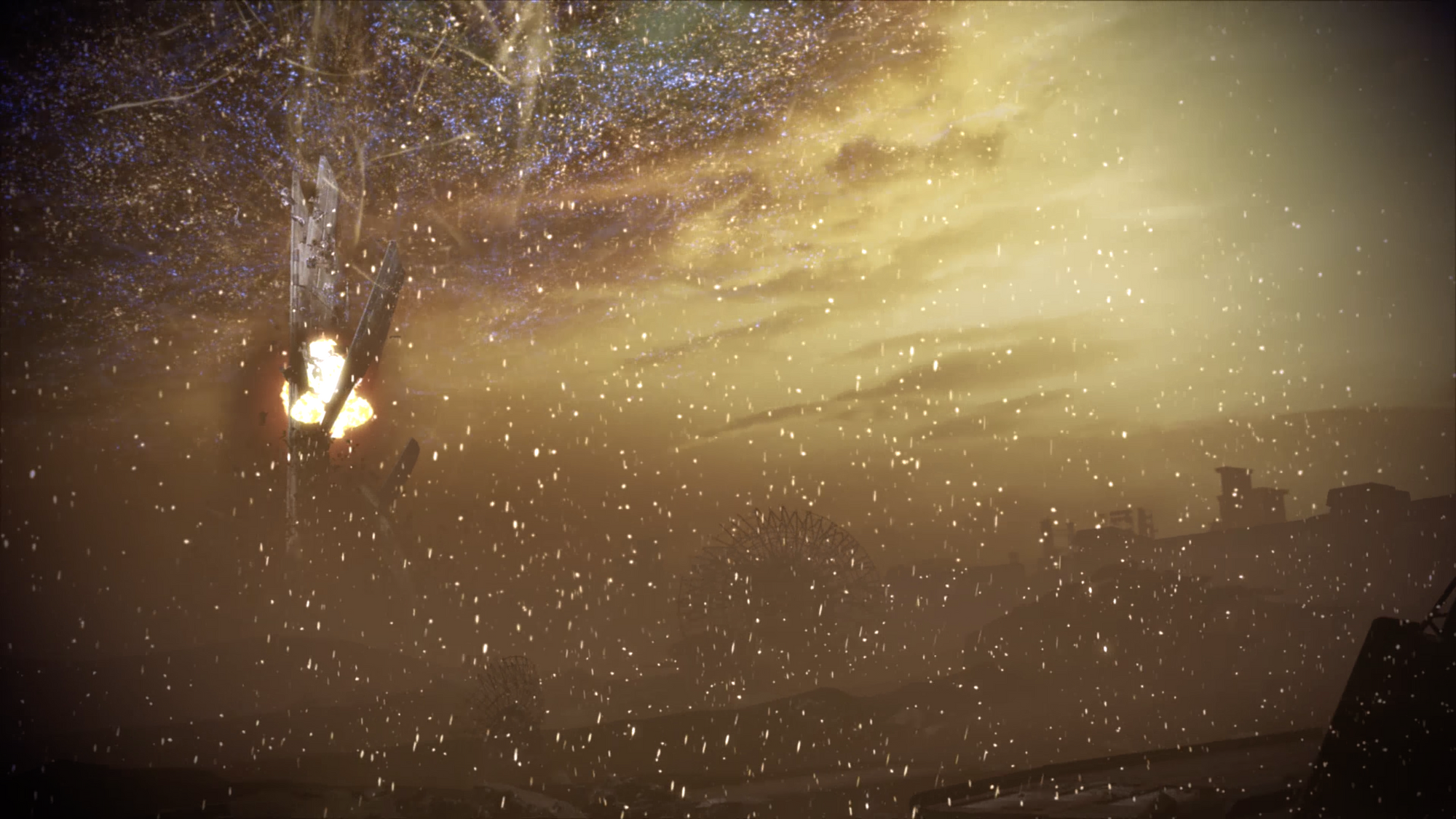
Though there were almost too many cutscenes in my opinion, I do love a gigantic space battle. The big one near Earth against the Reapers was visually delicious:
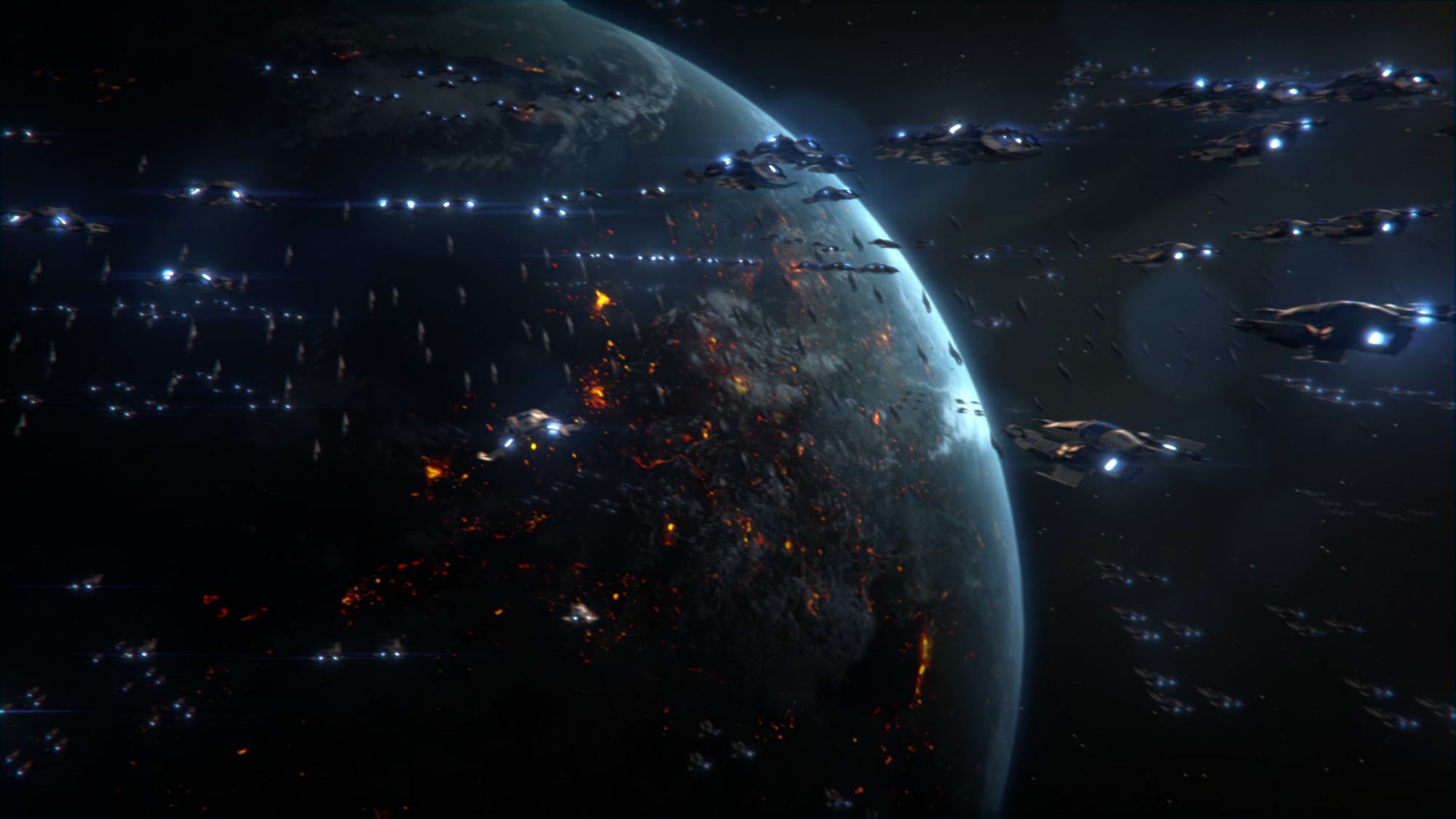
Overall impression
Excellent. Would play again.
My previous Mass Effect reviews
